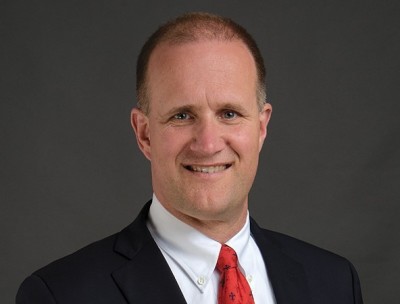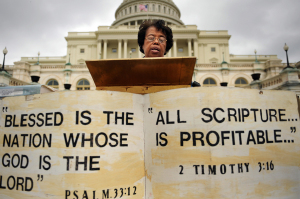5 lessons for new college graduates

I remember what it was like to be a new college graduate, at once thrilled and nervous as I considered the future. But I never had to persevere as a student through a once-in-a-century, devastating global pandemic.
Over the past year, I have watched our Pepperdine University students meet every challenge life has thrown at them with grace and courage. They have dealt with intense pressure. They have asked hard questions. They have stood up for justice. They have extended their hands to their neighbors.
Some of them have families of their own. Some are the first in their family to graduate from college or graduate school. Some are sick. Some are suffering. Yet, they have lived up to our school’s motto, the words of Jesus as quoted in Matthew 10:8: “Freely ye received, freely give.” They have truly given their all.
Pepperdine graduates, and graduates from colleges and universities around the world, deserve a special congratulations in the aftermath of this pandemic year. Having made it through the unique challenges of 2020 and 2021, they can make it through anything. I believe that, and so do they.
They’ve learned empathy, resilience, forgiveness, charity, advocacy, and many other important lessons. They are a new generation of leaders. As they step into this next journey with more freedom, responsibility, and challenges ahead, here are some tips to help graduates everywhere make the best of the gift of life.
Do the hard work of justice.
From preexisting racial and economic inequalities to growing crises in the realms of mental health and addiction, our nation faces an increasingly complex list of social challenges. Even as I write these words, suicide rates remain high and domestic violence is rampant. These challenges predated the pandemic, but disasters like this shed fresh light on the injustices in our world.
The truth is there are no simple answers to our most pressing questions. We have no quick or easy solutions to our present problems that satisfy our inclination towards instant gratification. They are beyond the realm of politics, for sure. Healing our wounds is going to be a long, intentional process beginning with the crucial work of honest self-reflection. Progress will always be imperfect, but you must press forward each day with more than enough grace for everyone.
Make hard decisions — you will never make everyone happy.
Margaret Thatcher once said, “Standing in the middle of the road is very dangerous; you get knocked down by the traffic from both sides.”
In other words, not making a decision is often more dangerous than making one.
Last spring, we had to make the difficult decision to move all fall semester classes online and to suspend on-campus housing due to the highly contagious nature of COVID-19. I knew not everyone would be happy with this move, but out of concern for the wellbeing of everyone in our community, and with respect for the authorities and as a good neighbor in Malibu, it was the right thing to do.
While it can be tempting to ignore or downplay the issues that make us uncomfortable at work, at school, at home, or in our communities, leadership requires us to make difficult choices that will not please everyone. True leadership stands up to pressure and does the right thing anyway. Trust your deeply held convictions to guide you.
Adopt an attitude of gratitude.
We have numerous personal freedoms and abundant resources in America — which we often take for granted. Yet, our lives can still be turned upside down overnight.
Over the past year, millions of people have experienced loss: loss of loved ones, loss of health, loss of income, loss of housing. Sadly, we don’t often realize who or what we have taken for granted until it is too late. Many of us feel these losses acutely.
G.K. Chesterton once noted, “When it comes to life, the critical thing is whether you take things for granted or take them with gratitude.”
We need to turn gratitude into a daily habit. There’s always something to be thankful for — even if it is simply our breath. Our very breath means more after this year.
Each dawn as I jog around the serene Pepperdine campus in Malibu, I see the sun reflecting off the ocean waves in the distance. Occasionally deer will make themselves known in the hills surrounding campus, and I am reminded of how truly blessed I am to have health and breath to see such remarkable reminders of this beautiful world.
Whether you go for a daily walk, meditate, or pray, I encourage you to find daily practices to ground yourself in the present moment. Let’s never lose that self-awareness.
Find strength in diversity.
At a time when so many people are hurting and mourning, division continues to rear its ugly head. Whether we are far apart literally or figuratively, we must fight to come together and remember our common humanity.
1 Peter 4:10 is instructive: "Each of you should use whatever gift you have received to serve others, as faithful stewards of God’s grace in its various forms."
We all have different stories and our unique experiences make us stronger. When we bring our unique gifts, strengths, and weaknesses to the table, our fellow neighbors uplift our weaknesses with their strengths and support their own weaknesses from our gifts. As we embrace our differences, let’s revel in the glorious progress we can make together.
Let your faith motivate you to work with excellence.
Although we are beginning to recover from the COVID-19 pandemic, normalcy still evades us. We need hope, which is why people of faith in every vocation have an important role to play right now. There are thousands of roles that you, graduates, are preparing to fill.
Being a person of faith in the workplace does not mean we get a divine “pass” on doing good work. Rather, our faith should motivate us to strive for excellence. We give our best not only at our vocation, but also to our colleagues, neighbors, and families. We pray for those in need and we see others as God’s image bearers. We choose to empathize rather than just pass people by.
Graduates, the peaks ahead of you continue to loom large. You may not be able to summit them alone, but you surely can, together — with God at your side.
Jim Gash is a lawyer and the president of Pepperdine University – one of America’s top 50 universities. Pepperdine, headquartered in Malibu, is a Christian university committed to the highest standards of academic excellence and Christian values, where students are strengthened for lives of purpose, service, and leadership.



























